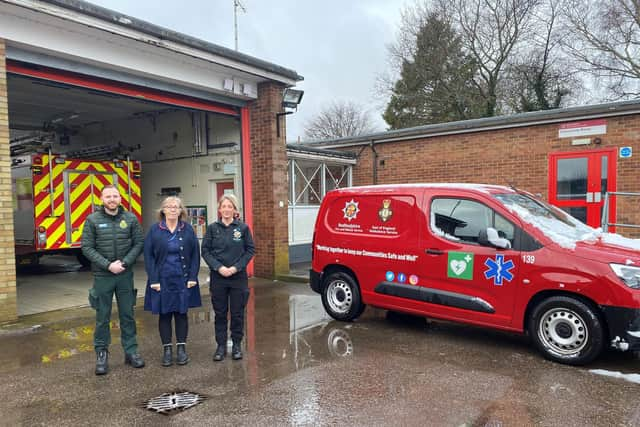Pioneering falls team to help vulnerable people in Bedfordshire is first of its kind in the country
and live on Freeview channel 276
If you have a loved one who often falls in the home, a new rapid support service might just alleviate your fears.
Believed to be the first of its kind in the country, the pioneering Bedfordshire falls service will combine the skills of Bedfordshire Fire and Rescue Service (BFRS), the East of England Ambulance Service Trust (EEAST) and Bedfordshire Community Health Service (BCHS).
Advertisement
Hide AdAdvertisement
Hide AdAnd – most importantly – could cut the need for an ambulance call as well as a long wait for hospital admission.


The multi-agency falls team operates across Bedford, Central Bedfordshire and Luton between 9am-5pm Monday to Friday.
Originally launched by ambulance and the fire service in 2020, it has involved community health services as a pilot since March 2023.
Statistically, people aged over 65 are most likely to have a fall within their home in addition to being more at risk of harm if involved in a fire.
Advertisement
Hide AdAdvertisement
Hide AdAnd if you have an elderly relative, it can be a real worry.
According to the Falls Team, the benefits of the collaborative model include:
A quicker response to lower acuity falls patients
In the vast majority of cases hospital transport is not required, enabling a home discharge
A full home fire safety review can be conducted by the team
It frees up ambulance crews to attend patients with life-threatening conditions and reduces ambulance call waiting times
Advertisement
Hide AdAdvertisement
Hide AdThe addition of a community nurse has also helped and has resulted in an even greater level of home discharge.
The team has its own vehicle and the average response time to calls is 21 minutes.
Group commander Rob Hulatt, BFRS prevention lead, said: “The combination of the Fire and Rescue Service’s Response and Prevention expertise in addition to Bedfordshire Community Health practitioner’s patient specific knowledge and bedside manner, have resulted in a more tailored approach to patient care, in addition to reducing ambulance mobilisations and subsequent hospital admissions.”
Claire Porter, BCHS urgent response implementation lead, added: “This hugely positive piece of work has also resulted in less need for an ambulance to attend patients who have fallen.”